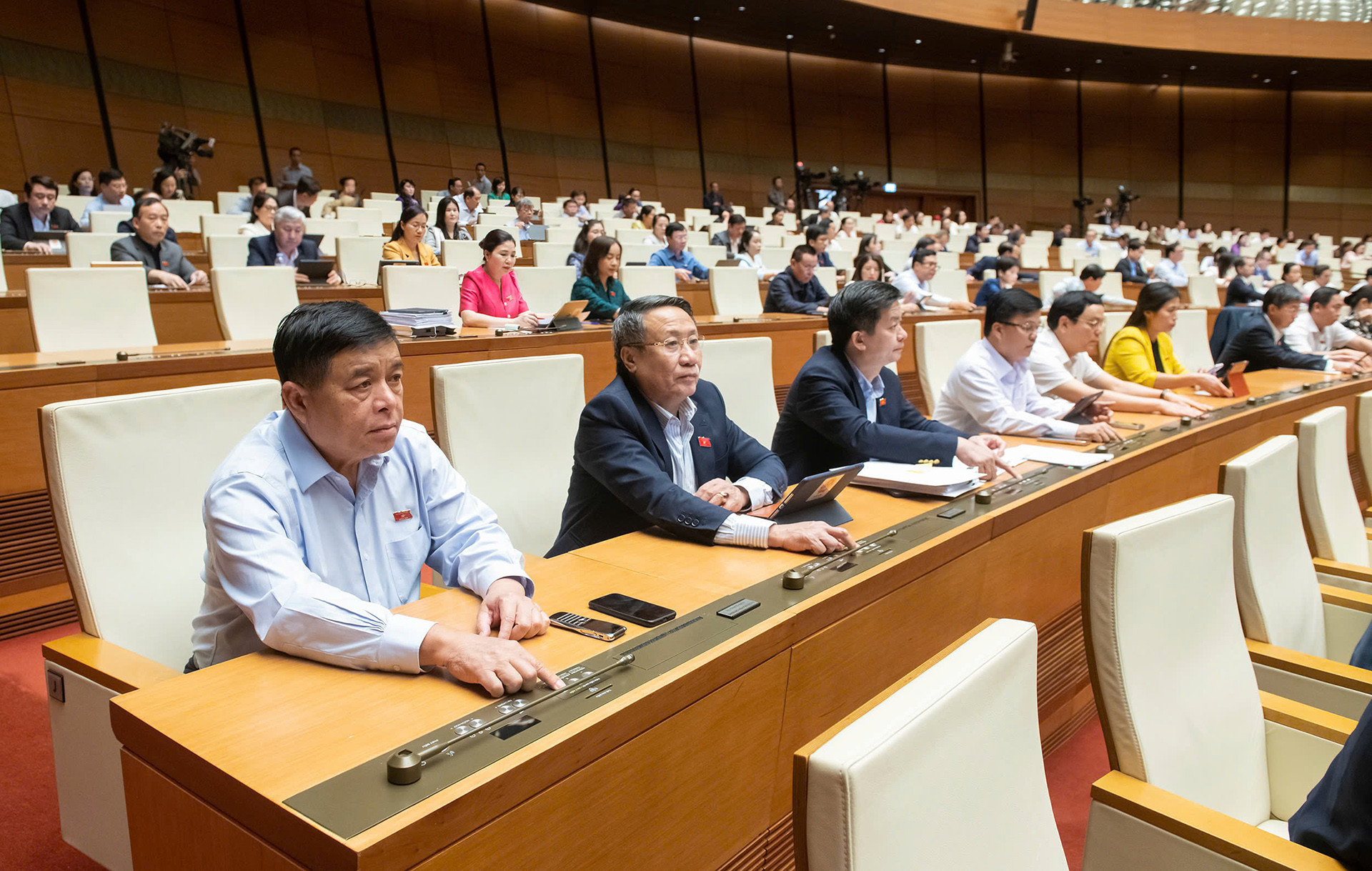On the afternoon of November 29, the National Assembly approved the amendments to nine laws, including those covering Securities, Accounting, Independent Auditing, State Budget, Management and Use of Public Assets, Tax Administration, Personal Income Tax, National Reserves, and Handling Administrative Violations. The revised laws received widespread support among attending deputies.

Under the amended Securities Law, six specific actions are banned as manipulative behaviors:
Creating False Supply and Demand: Using one or multiple accounts, either one’s own or others’, to repeatedly buy and sell securities to simulate false market demand or supply.
Simulated Transactions: Placing simultaneous buy and sell orders for the same security on the same trading day or colluding with others to conduct transactions that do not result in actual ownership transfer or only shift ownership within a group, thereby manipulating stock prices or creating artificial supply and demand.
Price Manipulation at Key Times: Continuously buying or selling large volumes of securities at the market's opening or closing to manipulate prices.
Orchestrated Transactions: Engaging in collusive trading by persuading others to repeatedly place buy or sell orders, significantly affecting supply, demand, and stock prices.
Media Influence: Expressing opinions directly or indirectly via media about a particular security or issuing organization to influence its price, especially after trading and establishing a position in the security.
False Information and Rumors: Spreading false rumors or misleading information to the public to create artificial supply and demand, thereby manipulating prices.
Independent Auditing Law updates
Amendments to the Independent Auditing Law stipulate that violators will face administrative sanctions, potential criminal liability, and other state management measures based on the severity of the offense.
If damage is caused, individuals or organizations must compensate victims according to the law. Maximum administrative fines for violations in the independent auditing field are set at VND 2 billion for organizations and VND 1 billion for individuals. The statute of limitations for imposing fines in this sector is five years.
The government will provide detailed regulations for handling administrative violations in the independent auditing field.
Debate on penalties
During discussions, some lawmakers suggested clarifying the basis for administrative fines to ensure deterrence. Others proposed doubling the current maximum fines and reducing the statute of limitations for violations to two years, citing a lack of personnel in the auditing field relative to market demand.
Responding to concerns, Le Quang Manh, Chairman of the National Assembly's Finance and Budget Committee, explained that the proposed maximum fines would apply only to severe violations of auditing standards that do not warrant criminal prosecution. He emphasized the importance of such measures in deterring misconduct, particularly given recent cases of serious ethical and professional breaches by audit firms and auditors.
The Standing Committee of the National Assembly urged the government to conduct detailed impact assessments and implement proportionate fines for specific violations as suggested by lawmakers when finalizing the draft guiding decree.
Tran Thuong